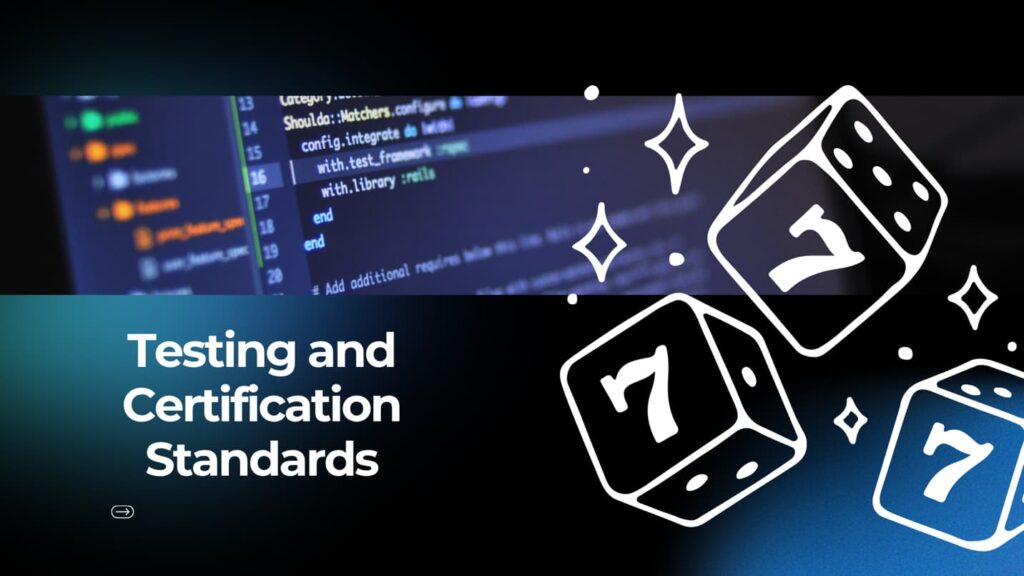Building Trustworthy Casino Games with Random Number Generation and Fair Play
Trust is the cornerstone of the online casino industry. Without it, players would never risk their money on digital platforms where outcomes are determined by invisible algorithms. At the heart of this trust lies Random Number Generation (RNG) technology and comprehensive fair play mechanisms that ensure every spin, deal, and roll is genuinely random and unbiased.
This article explores how modern casino operators build trustworthy gaming environments through proper RNG implementation, rigorous testing standards, and transparent practices. Understanding these elements is essential for both operators seeking to establish credibility and players wanting to make informed choices about where to gamble online.
Understanding Random Number Generation in Casino Games
What is RNG and How Does it Work?
Random Number Generation is the technology that produces unpredictable sequences of numbers used to determine game outcomes in digital casinos. These systems replace the physical randomness of dice rolls, card shuffles, and roulette wheel spins with mathematical algorithms. Each time a player presses “spin” on a slot machine or receives a card in digital blackjack, an RNG generates the result in microseconds.
The algorithms work by using complex mathematical formulas that produce numbers without discernible patterns. Modern RNG systems can generate millions of number sequences per second, ensuring that outcomes cannot be predicted or manipulated by players or operators.
Types of RNG Systems
Casino games primarily rely on two types of random number generators, each with distinct characteristics. Pseudo-Random Number Generators (PRNGs) use mathematical algorithms with seed values to create number sequences that appear random. These are the most common in online casinos due to their speed and efficiency.
True Random Number Generators (TRNGs) derive randomness from physical phenomena like atmospheric noise or radioactive decay. While theoretically more random, they’re less practical for high-speed gaming applications. Most reputable online casinos use sophisticated PRNGs that have been extensively tested and certified to meet industry standards for unpredictability.
Key Components of Fair Play
Return to Player (RTP) Rates
RTP represents the percentage of wagered money that a game returns to players over time. A slot machine with a 96% RTP will theoretically return $96 for every $100 wagered over millions of spins. This doesn’t mean individual players will experience exactly this return, but it provides a statistical measure of game fairness.
Industry-standard RTP rates typically range from 94% to 98% for slots, with table games often offering higher returns. Reputable operators display RTP information clearly, allowing players to make informed decisions about which games to play.
Game Volatility and Transparency
Volatility describes how a game pays out over time—whether in frequent small wins or rare large jackpots. High volatility games offer bigger potential payouts but less frequent wins, while low volatility games provide steadier, smaller returns. Understanding volatility helps players choose games matching their risk tolerance and bankroll.
Transparent operators provide detailed information about game mechanics, including:
- Pay tables showing all possible winning combinations
- Bonus feature trigger rates and average payouts
- Maximum win potential and hit frequency
- Detailed rules for all game features
This transparency empowers players to understand exactly what they’re playing and manage expectations accordingly.
Testing and Certification Standards

Independent Testing Laboratories
Third-party testing organizations serve as guardians of fairness in the online casino industry. Companies like eCOGRA (eCommerce Online Gaming Regulation and Assurance), iTech Labs, and Gaming Laboratories International (GLI) rigorously examine RNG systems before games reach players. These laboratories employ mathematicians, statisticians, and software engineers who analyze millions of game outcomes to verify true randomness.
The testing process involves examining the source code, running extensive simulations, and verifying that games perform according to their stated odds. Only games that pass these stringent tests receive certification, which operators must display prominently on their platforms.
Regular Audits and Compliance
Certification isn’t a one-time achievement but an ongoing commitment. Licensed casinos must submit to regular audits, typically conducted monthly or quarterly, to ensure continued compliance with fairness standards. These audits examine live game data rather than just testing environments, verifying that the RNG performs correctly under real-world conditions.
Documentation requirements are extensive, with operators maintaining detailed records of all game outcomes, player transactions, and system modifications. This audit trail ensures accountability and allows regulators to investigate any suspected irregularities quickly.
Transparency and Player Trust
Provably Fair Gaming Technology
Blockchain technology has introduced a new level of transparency called “provably fair” gaming. This system allows players to independently verify that each game outcome was determined fairly using cryptographic hashing. Before each game round, the system generates a seed that determines the outcome, and players can check this seed against the actual result.
The process works through three key elements:
- Server seed: A random value generated by the casino before the game begins
- Client seed: A value provided by the player or their browser
- Hash verification: Mathematical proof that these seeds produced the displayed outcome
This technology eliminates the need to trust the operator blindly, as mathematical verification replaces faith-based trust.
Publishing Payout Data
Leading operators publish regular payout reports showing actual RTP percentages achieved across their game portfolio. These reports, often verified by independent auditors, provide concrete evidence of fair play rather than theoretical promises. Some casinos even offer real-time statistics showing current win rates and jackpot frequencies.
This level of transparency builds player confidence by demonstrating that games perform as advertised. When players can see documented evidence of fair outcomes over millions of game rounds, trust naturally follows.
Regulatory Framework and Licensing
Major Gambling Authorities
Legitimate online casinos operate under licenses from respected regulatory bodies that enforce strict RNG and fair play requirements. The UK Gambling Commission, Malta Gaming Authority, and Gibraltar Regulatory Authority are among the most stringent, requiring comprehensive testing and ongoing compliance monitoring. These authorities can suspend or revoke licenses for operators who fail to maintain proper RNG standards.
Different jurisdictions have varying requirements, but all reputable regulators mandate independent RNG certification, regular audits, and player protection measures. Operators must also maintain segregated player funds and demonstrate financial stability to protect customer deposits.
Conclusion
Building trustworthy casino games requires a comprehensive approach combining advanced RNG technology, rigorous testing, transparent practices, and strong regulatory oversight. As the industry evolves, technologies like blockchain and provably fair systems are pushing transparency to new heights, giving players unprecedented ability to verify fairness themselves.
For operators, investing in proper RNG implementation and certification isn’t just about compliance—it’s about building the trust necessary for long-term success. For players, understanding these systems empowers informed choices about where to play and what to expect. The future of online gambling depends on continued commitment to these principles from all stakeholders.


